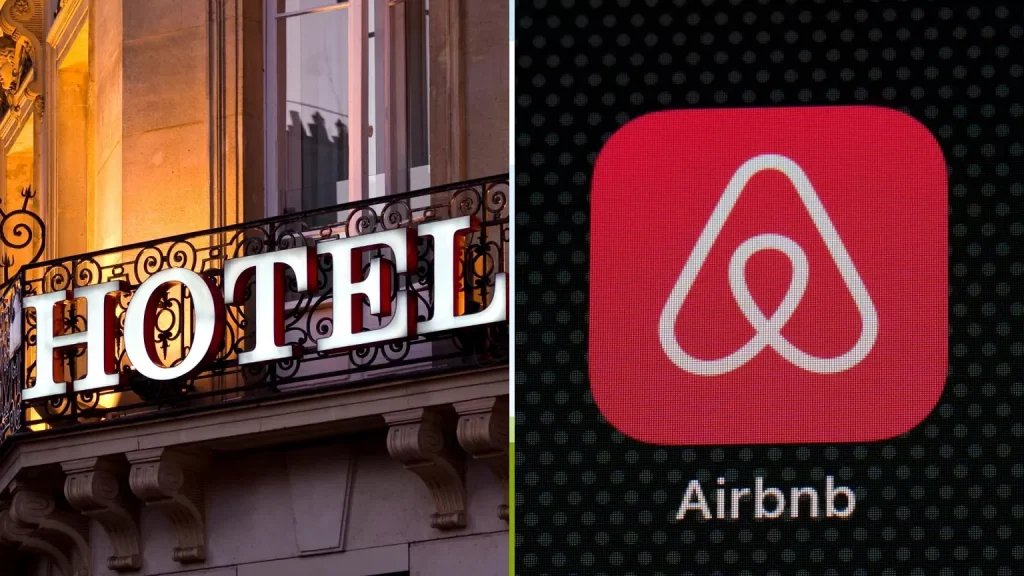Airbnb’s Pros and Cons vs. Hotels: An Awakening Call
The rise of Airbnb has transformed the global travel landscape. It offers many travelers an alternative to traditional hotel stays by providing unique, local, and often more affordable accommodations. But with its growing popularity comes debates: Is Airbnb truly better than a hotel? What are the hidden advantages and disadvantages? This article offers a detailed comparison, giving you the awakening call you need before booking your next trip.

The Appeal of Airbnb
Airbnb has revolutionized the short-term rental market by connecting travelers with hosts who rent out spare rooms, entire apartments, or even unique properties like treehouses, boats, and castles. It promises a more personal, authentic, and often cheaper alternative to hotels. But the platform’s appeal goes beyond just price.
Airbnb Pros
Unique Stays
Airbnb provides access to unique and non-standard housing. You might choose to stay in a city center apartment, a country home, or a beachfront villa. Airbnb provides tourists with unique and often interesting alternatives to cookie-cutter hotel accommodations.
Local Experience
Staying in an Airbnb typically entails living in a local neighborhood, providing a more authentic experience. You get to shop at neighborhood markets, eat at local restaurants, and sometimes even interact with hosts who provide insider tips.
Cost-Effective for Groups
Renting an entire Airbnb property can be more cost-effective for families or groups than booking multiple hotel rooms. You also get communal spaces like living rooms, kitchens, and outdoor areas, making group stays more enjoyable.
Kitchen Facilities
Having a kitchen allows travelers to cook their own meals, save on dining costs, and cater to dietary needs, especially useful for long stays or families with children.
Extended Stays
Many Airbnb hosts offer discounts for weekly or monthly bookings, making it a practical choice for long-term travelers or remote workers who need a home base for an extended period.
Airbnb Cons
Lack of Consistency
Unlike hotels, where you can expect standardized services and amenities, Airbnb properties vary widely in quality. One apartment may be spotless and beautifully maintained, while another may disappoint.
Service Gaps
Unlike hotels, which provide daily housekeeping, front desk support, room service, and concierge assistance, Airbnb requires you to manage everything yourself. If an issue arises, resolution can depend on responsiveness.
Hidden Fees
While Airbnb listings often seem cheaper at first glance, added cleaning fees, service fees, and sometimes high deposits can significantly increase the final cost. Always check the total price before booking.
Strict Cancellation Policies
Hotels often offer flexible cancellation options. With Airbnb, hosts set their policies, which can range from flexible to very strict. You might not get a refund if your plans change last minute.
Legal and Safety Concerns
Some cities have cracked down on short-term rentals, meaning your Airbnb might technically be operating illegally. Additionally, the lack of regulated safety standards (like fire exits, emergency contacts, or secure locks) can be a risk.

The Hotel Advantage
Hotels provide consistent, reliable, and comfortable services, making them a popular choice for travelers worldwide. Despite the rise of Airbnb, hotels remain popular—and for good reason.

Hotel Pros
Standardized service.
With hotels, you usually know what you’re getting. From cleanliness standards to room layouts, branded hotels provide a consistent experience.
On-Site Amenities
Hotels frequently feature gyms, pools, restaurants, spas, conference rooms, and business centers. These additional services can considerably improve your stay.
Professional Support
Hotels provide common services such as front desk assistance, room service, concierge recommendations, wake-up calls, and 24/7 support, making problem resolution easier.
Safety and Regulation
Hotels must follow local health, safety, and accessibility regulations. CCTV, keycard access, and on-site workers all contribute to increased security.
Loyalty Programs
Hotel loyalty programs offer frequent guests the opportunity to earn points, discounts, upgrades, and complimentary amenities over time.
Hotel Cons
Hotels, particularly in excellent areas or during high seasons, might be more expensive than Airbnb. Additional costs (such as resort fees or parking) can accumulate.
Less Space
A normal hotel room has less space than an Airbnb apartment or house, which might be inconvenient for families or groups.
Generic Experience
Hotels, especially major chains, might appear impersonal and disconnected from the local culture. Travelers seeking a more immersive local experience may find them unappealing.
Limited kitchen access.
Most hotels do not have kitchen facilities, making it difficult for guests to cook or store food. This can lead to higher meal bills.
Rigid Check-In/Out Times
Hotels have stringent check-in and check-out times, and early or late check-ins may result in additional fees, limiting flexibility.
Airbnb vs. Hotels: Who Wins?
There is no clear victor between Airbnb and hotels; the best option is dependent on the traveler’s needs, tastes, and the nature of the trip.
Hotels may be more convenient and safe for solitary travelers or couples on a short city trip.
Airbnb’s spaciousness and cooking amenities appeal to families and groups looking for a home away from home.
For long-term stays or digital nomads, Airbnb frequently provides lower rates and a more pleasant living environment.
Hotels offer unparalleled amenities and professional support to luxury tourists and those who prioritize service.

Quick Note
The decision between Airbnb and hotels is about more than just money; it’s about the type of vacation experience you seek. Airbnb’s popularity has prompted guests to reevaluate what they value most: local immersion, flexibility, and space, or stability, service, and comforts.
Before booking your next trip, thoroughly consider the advantages and downsides. Look past the marketing hype, study reviews carefully, and be honest about what is most important for your comfort and safety.
This wake-up call is not intended to promote one over the other, but rather to assist you in making educated, prudent travel selections.









